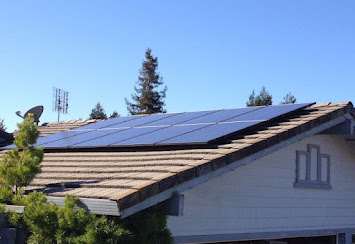The Rise of Solar Electric Power a Sustainable Future
As the global demand for clean, renewable energy continues to grow, solar electric power has emerged as one of the most promising solutions to combat climate change and reduce our dependence on fossil fuels. With rapid advancements in solar technology and increasing affordability, solar electric systems are becoming a popular choice for homeowners, businesses, and governments alike.
What Is Solar Electric Power?
Solar electric power, also known as photovoltaic (PV) power, is generated by converting sunlight into electricity using solar panels. These panels contain semiconductor materials, typically silicon, that absorb sunlight and release electrons, generating an electric current. This electricity can then be used to power homes, businesses, or even fed back into the grid.
Unlike traditional power sources such as coal or natural gas, solar electric systems produce zero greenhouse gas emissions during operation. This makes them a clean and sustainable energy solution for the 21st century.
How Solar Electric Systems Work
A typical solar electric system includes solar panels, an inverter, a battery (optional), and a charge controller. Here’s a brief overview of how these components work together:
- Solar Panels: These capture sunlight and convert it into direct current (DC) electricity.
- Inverter: The inverter converts the DC electricity into alternating current (AC), which is the type of electricity used in most homes and businesses.
- Battery Storage (optional): Batteries store excess energy for use during nighttime or cloudy days.
- Charge Controller: This regulates the voltage and current from the panels to protect the battery from overcharging.
Benefits of Solar Electric Systems
There are numerous advantages to installing a solar electric system:
1. Cost Savings
Once installed, solar electric systems can significantly reduce or even eliminate monthly electricity bills. In many regions, homeowners can sell excess energy back to the grid through net metering programs, further increasing their savings.
2. Environmental Impact
By using solar electric power, you help reduce carbon emissions and air pollution. A typical residential solar panel system can offset several tons of CO₂ annually, which is equivalent to planting hundreds of trees.
3. Energy Independence
Solar electric systems give homeowners and businesses more control over their energy production and usage. This independence reduces reliance on utility companies and protects against rising energy costs.
4. Low Maintenance
Solar electric systems require minimal maintenance. Most panels come with warranties of 20 to 25 years and need only occasional cleaning and inspections.
The Economics of Solar Electric Power
The cost of solar electric systems has dropped dramatically over the past decade. Government incentives, tax credits, and financing options have made solar more accessible than ever. In many cases, the return on investment (ROI) can be achieved in 5 to 10 years, depending on location and system size.
In addition, solar electric systems can increase property value. Studies have shown that homes equipped with solar panels sell faster and at a premium compared to homes without them.
Solar Electric for Businesses and Communities
It's not just homeowners who are benefiting from solar electric systems. Many businesses are making the switch to solar to reduce operational costs and improve their sustainability profile. Schools, hospitals, and government buildings are also increasingly powered by solar energy.
Large-scale solar farms are being developed to provide solar electric power to entire communities. These utility-scale projects demonstrate the scalability of solar technology and its potential to replace traditional power plants.
Challenges and Future Outlook
Despite the many benefits, there are still some challenges facing the widespread adoption of solar electric power. These include:
- Intermittency: Solar energy is dependent on sunlight, which means it can be less effective on cloudy days or at night. However, battery storage solutions are becoming more efficient and affordable.
- Initial Costs: While prices have dropped, the upfront cost of installing a solar electric system can still be a barrier for some.
- Space Requirements: Rooftop solar may not be viable for all homes, especially in densely populated urban areas.
That said, the future of solar electric power looks promising. Continued innovation in solar panel efficiency, battery storage, and smart grid technology is expected to make solar an even more integral part of the global energy mix.
Conclusion
Solar electric power is no longer a futuristic dream—it’s a practical, affordable, and essential part of the modern energy landscape. Whether you’re a homeowner looking to cut energy bills or a policymaker aiming to reduce carbon emissions, investing in solar electric solutions is a smart and sustainable choice for the future.
Call (866) 926-9997 or email sales@highlightsolar.com.




Comments
Post a Comment